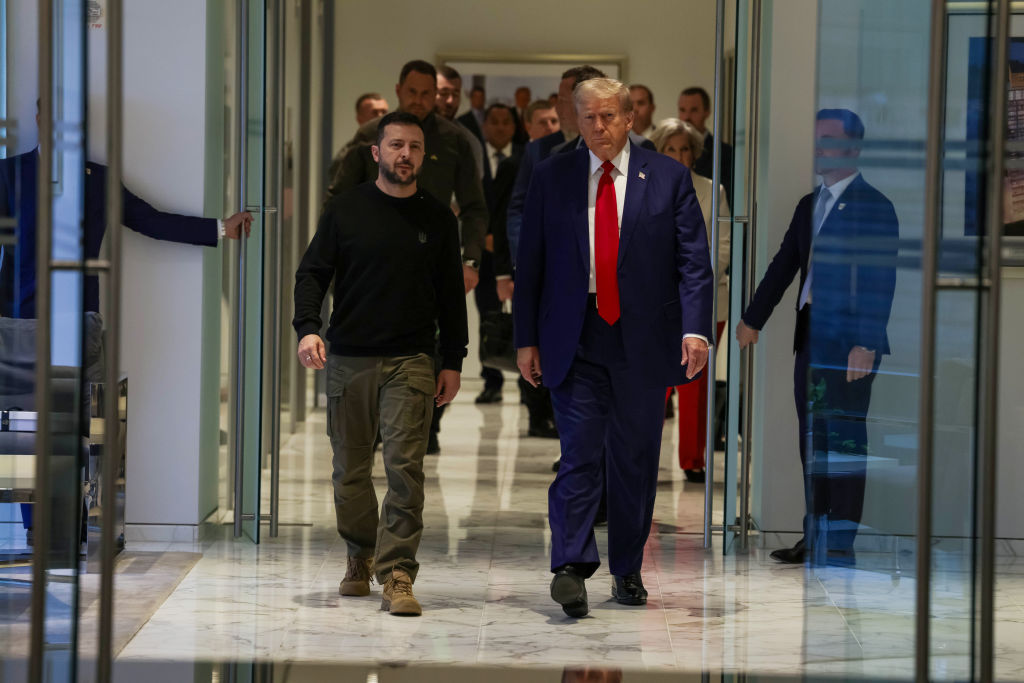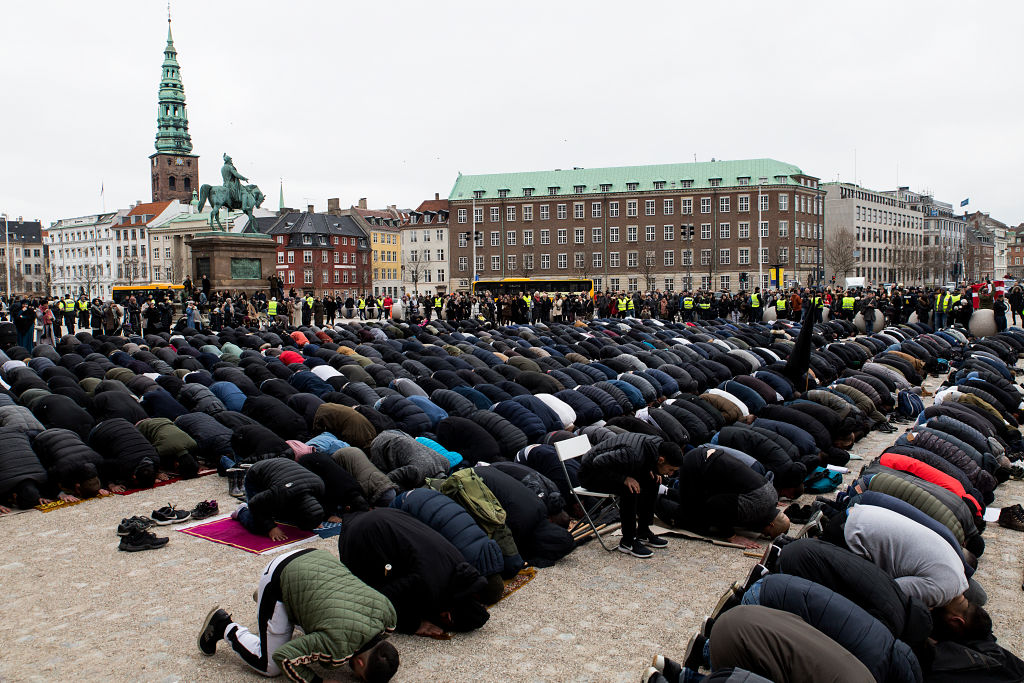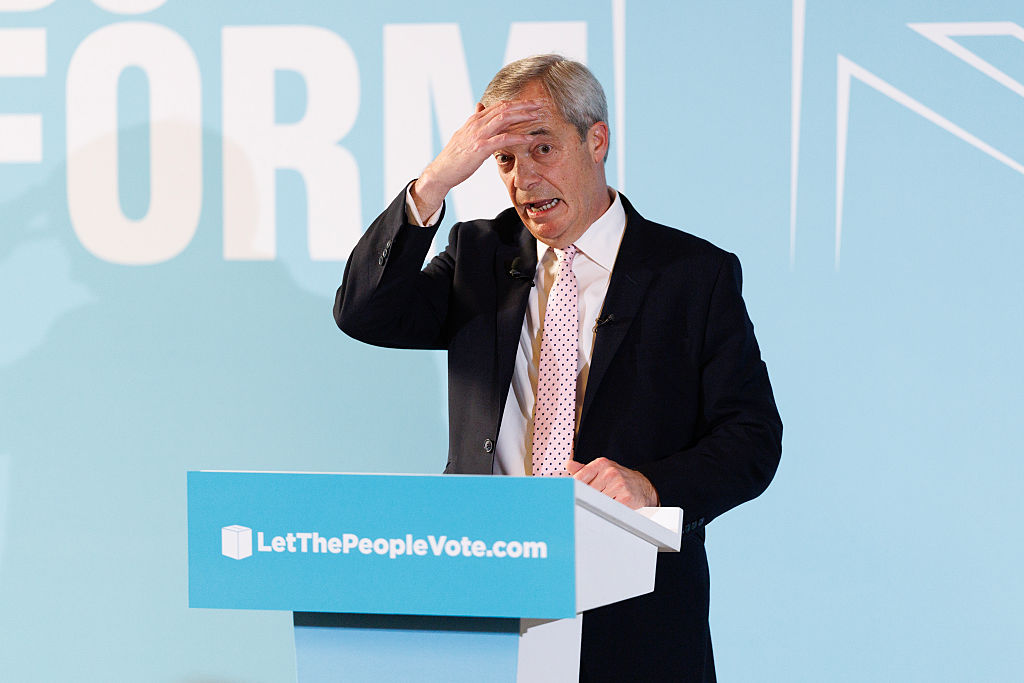I have known Volodymyr Zelensky very well for years. As a senior official personally appointed by Zelensky, I spoke to him many times a day and observed him closely both in public and privately. We parted on good terms and without rancor. I have no personal ax to grind. But today I cannot remain silent about how Zelensky is weakening Ukraine under the guise of war. As a result of this new climate of fear I must write these words under the veil of anonymity — a necessary precaution against retaliation from the very regime I once served.
It pains me to admit that at least some of what Donald Trump has said about Zelensky is true. While western politicians have rushed to condemn Trump and his vice president’s remarks, a quiet ripple of approval ran through large parts of Ukrainian society.
Ukraine has become a paradox: a nation fighting for its sovereignty while dismantling its own democratic foundations. For years, the West has indulged in the illusion of Zelensky as the “face of democracy.” In reality, he has undermined our democracy, institutions and economy, making Ukraine much weaker in the face of an existential threat — and in the process destroying our nation’s motivation to fight the Russian aggressor.
His first presidential term ended in May 2024, but with the war ongoing, no elections were held. Zelensky, who prolongs martial law every three months and has never thought about easing it, as European politicians are suggesting, claims that “the people don’t want elections.” The recent Ukrainian survey confirms this, with 65 percent of Ukrainians not wanting to have elections throughout the war. But over half of Ukrainians wanted to see the end of the conflict as soon as possible, according to Gallup polling last year. That percentage might be higher now. Moreover, I often doubt we can trust current polls from Ukraine. Today, fear rules over a country where elections are indefinitely postponed, human rights are systematically eroded and fear dictates daily life.
Zelensky’s authoritarian instincts were already becoming clear even before Putin’s invasion. As early as 2019, I listened as he demanded propaganda from his subordinates to flood the media with praise when his policies failed. Today, he has achieved that: a vast army of voices branding him the face of democracy and the very embodiment of Ukraine itself.
Ukraine, exhausted of every resource, cannot withstand a prolonged war of attrition. Thousands of Ukrainian men have paid bribes — tens of thousands of dollars — to flee the only European country with sealed borders for men of conscription age. Those who remain live in fear, wary of stepping outside lest they be seized off the streets, in cafés, or in shops — dragged into vans and sent to the front lines. Some of the latest draftees are disabled or chronically ill. Many receive little or no training before deployment. Increasingly, their fates are sealed in recruitment offices as officers wait to be bribed. Wives, girlfriends, daughters and mothers now take on traditionally male jobs, scraping together whatever earnings they can to bribe officials, desperate to secure exemptions for their loved ones and for young men before they reach conscription age. Yet those with the right government connections are free from conscription and enjoy unrestricted freedom of movement.
War has provided Zelensky with unchecked power, enabling his security forces to act with impunity. In at least eight frontline regions, martial law has given rise to police and military excesses. Under the pretext of hunting down collaborators, state forces raid homes, search phones and laptops and detain civilians arbitrarily. In such areas, people will never reveal their true thoughts to a journalist or a pollster. They will parrot the state’s approved rhetoric — Zelensky as a hero, Ukraine as unbreakable. And then, in private, they will say what they really think: that they want him gone.
On a more senior level, accusations of alleged Russian ties are routinely used to expropriate businesses. Scandals involving inflated reconstruction costs and bribes for travel permits are rampant, reflecting a broader erosion of trust in the government. Polls reveal a growing disenchantment among Ukrainians, with over 70 percent now believing that the government is exploiting the war for personal gain. In some regions suffering relentless bombardment some quietly admit they would rather live under Russian rule. This is not treason; it is a consequence of Zelensky’s destruction of democracy. With no clear purpose left in the fight, many now seek an alternative — a pro-Russian candidate willing to strike a deal with Vladimir Putin, or even the grim resignation that life under a Russian flag might be preferable to endless war. The shallow patriotism that Zelensky promotes is crumbling. Exhaustion has set in. The question is no longer whether Ukraine can win, but whether it can even survive under his rule.
The war has given Zelensky everything he ever wanted: absolute power, control over billions in foreign aid, and standing ovations from the world. From his very first day in office — which I witnessed first-hand — he was fixated on securing a second term. Publicly, he dismissed any talk of re-election, insisting it was too early. Privately, he never stopped preparing. Zelensky is obsessed with his approval ratings. Even now, he is laying the groundwork for his campaign. Since September 2024, his administration has been funneling extra payments to those who promote his image online — flooding social media with thousands of carefully curated videos showcasing him as the charming actor-turned-wartime leader, clad in his signature khaki T-shirt. But his more decisive strategy has been the systematic elimination of political opponents.
Former commander-in-chief of the Armed Forces Valerii Zaluzhnyi — the most formidable potential challenger — was abruptly dismissed last year and reassigned to a diplomatic post. Insiders report that criminal cases have already been prepared against Zaluzhnyi, should he dare to enter politics.
Meanwhile, former president Petro Poroshenko has just been hit with sanctions — his bank accounts frozen, his assets seized, to the point that he reportedly couldn’t even pay for coffee at a gas station. For years, he has dreamed of reclaiming power, moving from Ukraine’s fifth president to its seventh, and he still commands a loyal electorate. Yuriy Boyko, leader of the party branded as pro-Russian was summoned by the Security Service of Ukraine for interrogation over a TikTok video calling for an end to the war. Zelensky is really preparing for elections, but he wants to make sure there is no level playing field so that he can certainly win them.
Today, Zelensky and his circle have consolidated nearly total control over the state. They can manipulate elections, suppress dissent and imprison whomever they choose. Independent media are officially banned from television and radio airwaves, while opposition and anti-corruption activists active online have been threatened with arrest. One man who had exposed corruption involving presidential chief of staff Andriy Yermak’s brother was sent straight to the frontlines, deployed to the most dangerous combat zones, where he died. Another prominent editor whose revelations brought down former defense minister Oleksiy Reznikov for corruption was saved from jail only by the urgent personal intervention of the US ambassador. Another editor of an independent media outlet that irritates Zelensky was held by conscription officers for twenty-four hours incommunicado until he “found an understanding” with them and went to the front. A parliamentarian who wrote that Zelensky must recognize he is losing and end the war was arrested for treason within three days and is now in jail, following a ruling from the district court of Kyiv.
Before the war, Zelensky’s approval rating hovered at 23 percent. When in the wake of Putin’s invasion the phrase “I need ammunition, not a ride” — words spoken not by Zelensky but by an anonymous American diplomat — was widely circulated in the media, transforming him into a global icon. His approval ratings soared past 90 percent. But over time, they began to erode. Private polling, which I have seen, now puts his support below 10 percent. Public polls, aligned with the President’s Office, claim it remains at 63 percent.
Ukrainians are not cowards. But they do not want to die for Zelensky’s government, drowning in corruption scandals, day after day. Only ending the war and restoring democracy and the economy can preserve Ukraine. Continued war will lead not to victory but to the collapse of our nation. Power must change hands. And if Donald Trump does not make that happen, then Ukraine has no hope.


























Leave a Reply